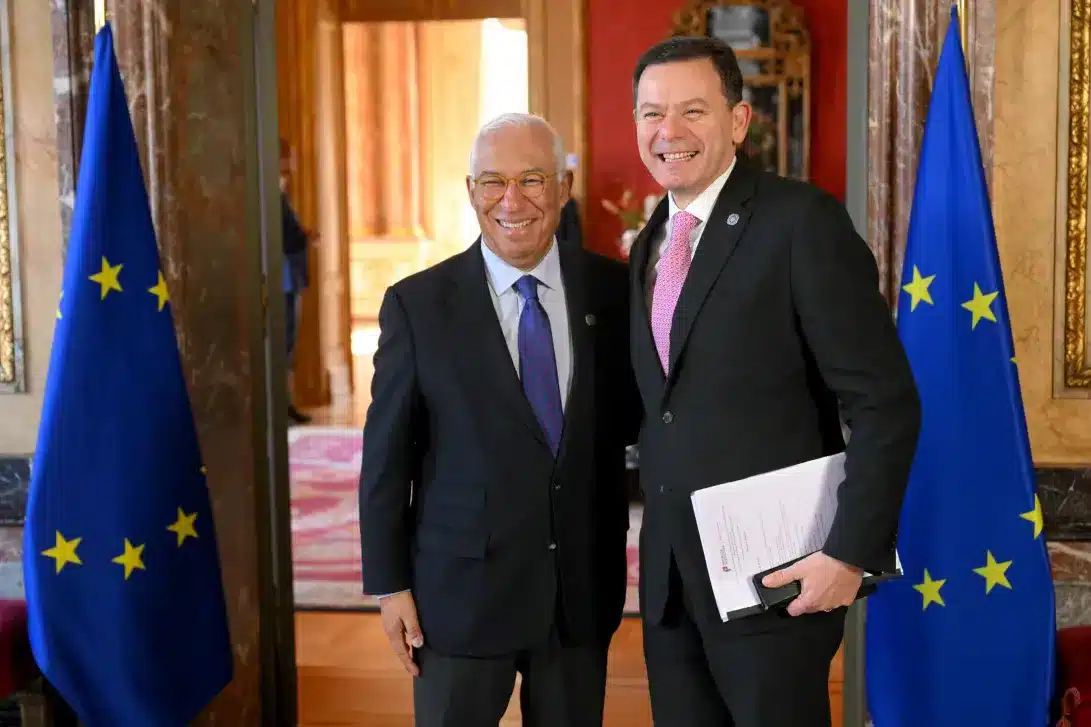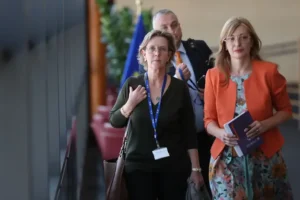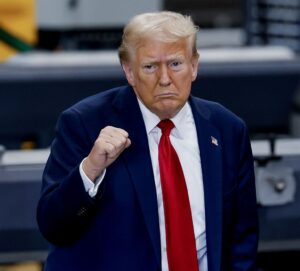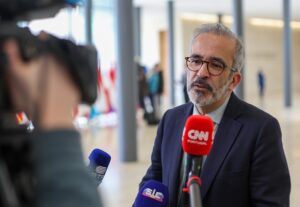“Tariffs raise prices: you don’t need to be a Nobel economist” to work it out
With EU leaders meeting in Brussels today, Portugal’s prime minister has reacted to the threat from US president Donald Trump to impose tariffs on the bloc (which he complains “treats the US atrociously”).
“You don’t have to be a Nobel Prize winner in economics to realise that the increase in tariffs on products that contribute to price formation on the side of American industries will have an impact on price increases”, Montenegro told reporters – adding that “everything that comes from political leaders who represent the popular will of their respective countries is always to be taken seriously.”
President Trump “was elected based on the popular vote of the Americans and, therefore, we must respect his positions, but this is an evolutionary process and my conviction is that political dialogue must be the key if we are to have the economic conditions to have good growth rates, both in the United States and in Europe.
“Now we have to look at the issues realistically. In recent years, Europe has been over-regulated and has perhaps had over-ambitious objectives in terms of having rules similar to those of other trading blocs,” the PM added.
It was, in many ways, a different approach to other European voices which have described “retaliating strongly if unfair tariffs are imposed”.
Mr Montenegro clearly sees the ‘next step’ as one of dialogue, not knee-jerk reaction.
Donald Trump has to an extent taken everyone by surprise by this current focus. Pre- his election win, all eyes were on how the United States would deal with Russia and the war in Ukraine.
But perhaps true to form, Mr Trump appears to be more concerned with improving the financial situation of his country ahead of anything else – and in that sense “tariffs are the most beautiful word”…
Following the imposition of 25% tariffs on imports from Canada and Mexico over the weekend (and 10% above current tariffs on imports from China), Mr Trump has said Europe will be next.
“They’re really taking advantage of us, we have a deficit of $300 billion (€293 billion). They don’t take our cars or our agricultural products, practically nothing, and we all buy millions of cars, huge levels of agricultural products (…) The European Union has treated us so terribly”, Mr Trump told a press yesterday.
Thus today Brussels is in something of a huddle, speaking in different voices: President Macron has said that if Europe is “attacked in terms of trade … (it) will have to stand up for itself and therefore react”, while Poland’s Donald Tusk has stressed that it would be “totally unnecessary and stupid” to get into a form of tariff war.
The EU’s foreign policy chief Kaja Kallas has referred to the bloc “listening carefully”, recalling that “if the US and Europe start a trade war, the one laughing on the side is China” – while other heads of government, like Luís Montenegro, favour dialogue, negotiation and possibly less talk about ‘reaction’.
Mr Montenegro’s statements were made on his arrival at the first retreat of EU heads of government and state – an initiative of the president of the European Council, António Costa, who took office a couple of months ago, and seeks this way to promote informal dialogue between senior European officials without the pressure to reach conclusions or decisions, as happens at regular European summits.
It is understood that defence will be a key part of these talks, albeit Donald Trump’s emphasis on tariffs does appear to be blurring the whole picture.
In Portugal, Lisbon stocks are also trading lower as investors “brace for the US tariff outcome”, writes Lusa. Shares in Ibersol, EDP Renováveis, GALP, BCP, Corticeira Amorim Mota-Engil, Semapa, Altri, Navigator, EDP and Sonae all fell this morning, as the value of the euro also dipped compared to the dollar.




















